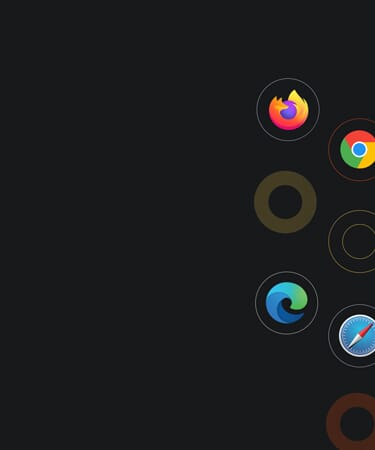User Trackability is getting stricter, and based on our proprietary research, we are seeing browser trackability drop to 47% on average in the last 15 months. The new report helps marketers understand what it means for remarketing, conversion tracking and more.
In 2024, digital advertising is changing fast. Chrome and other browsers are blocking tracking cookies, causing a drop in trackability from 51% to 47% over the last 15 months.
With all the changes happening, limitations are already taking effect, reshaping how browsers filter and set up digital media and measurement parameters.
Download the latest Feb 2024 report to understand the new landscape and discover how to thrive in the age of privacy. The key findings and recommendations from the report are relevant to marketers and businesses navigating the new privacy changes and formulating their media strategies for the coming year.
What is Trackability?
When a browser is collecting data about a user’s online behaviour such as what websites they have visited, especially through the use of cookies, they are tracking users data. The recent legislation changes have meant some browsers now track less data about users, such as Apple’s Safari browser. Google is rolling out tracking protection for a select 1% of its users in Q1 2024, with plans to expand to all by Q3.
This change in browser behaviour and technology will impact marketers' ability to perform functions like remarketing/retargeting, conversion attribution and even personalisation. The User Trackability Decline Report from Resolution Digital highlights the recent changes in browser tracking behaviour and forecasts what we might see by different digital media channels in the new year.
Download the latest User Trackability Decline Report (Feb 2024)
Key Findings
Reduction in trackability: The report shows a noticeable decline in the granularity of measurement and reporting. The average browser trackability has dropped from 51% to 47% over the past 15 months, indicating a significant shift in digital advertising.
Chrome's current dominance: As of Feb 2024, trackability is heavily reliant on Google Chrome inventory. But this is likely to change in late 2024 as Google plans to make third-party cookies obsolete, which will greatly impact digital tracking altogether.
Challenges ahead: New restrictions on trackability bring new challenges in accurate measurement, activation, and optimisation of digital advertising campaigns. These challenges call for a more proactive approach by brands and their media agency partners as changes unfold.
Matteo Resta, National Head of Customer Success, highlighted,
“As the digital ecosystem undergoes continuous evolution, it’s worth noting that some marketers may not have secured a long-term solution to prepare for the cookie-less world. Given the substantial decrease in visibility we’re currently witnessing, there’s an urgent need for adoption of forward-thinking solutions that effectively mitigate the overreliance on third party cookies. Solutions like data clean rooms and regression modelling are becoming increasingly critical in navigating this transformative phase."
Recommendations for Marketers
Transition to privacy-conscious solutions: As third-party cookies continue to be restricted, there’s a need to shift from traditional cookie-based strategies to more privacy-focused, user-level data approaches. This transition is essential, especially when considering user trackability without overstepping privacy laws.
Exploring walled gardens and data clean rooms: To navigate these changes, clients need to explore walled garden data clean rooms. These solutions can provide effective targeting and measurement approaches that align with the new privacy laws.
Download a copy of the latest User Trackability Decline Report to read more and get in touch to find out how we can help you prepare for a cookie-less future, to minimise your impact on digital media performance.
Acknowledgements
This report was created in collaboration with Resolution Digital’s data and technology team, Annalect.
Updates
Published - 04/12/2023
Updated - 08/03/2024











